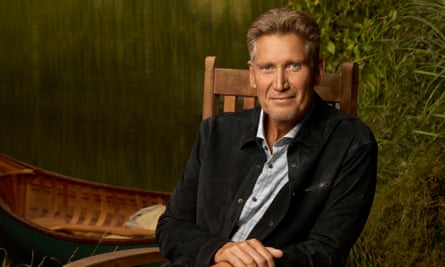Strange as it may sound, one of the hottest shows on TV this fall has been … an old dating series now catering, for once, to senior citizens. That would be The Golden Bachelor, a new spin-off of America’s pre-eminent dating series in which a 72-year-old widow searches for love among a cohort of age-appropriate women aged 60-75. The show has delivered the franchise’s highest ratings in years – its September premiere reached a combined 13.9 million viewers and set a streaming record as ABC’s most-watched episode of an unscripted series ever on Hulu. And it’s not just appealing to the golden demographic; the series scored the franchise’s best ratings for the 18-49 demographic since a 2021 episode of Bachelor in Paradise, which adheres to the much more standard format of hot young singles commingling in hot exotic locales.
Anecdotally, The Golden Bachelor has transcended the generally siloed island of Bachelor Nation – no show has been mentioned to me more this fall, or with more surprise and delight. I’m generally dating show agnostic, and yet found myself charmed by the older midwesterner Gerry Turner and his suitors, all openly looking for companionship after love, loss and many former eras. Regardless of who Turner chooses on this week’s two-hour season finale – 64-year-old Leslie Fhima, a former national aerobics champion, or 70-year-old Theresa Nist, who also lost a longtime beloved spouse – the Golden Bachelor has undoubtedly reinvigorated America’s pre-eminent dating franchise.
That’s partly down to Turner, who has the story of reality TV fantasy – a small businessman married for 43 years to his high school sweetheart and devastated by her sudden death in 2017, just weeks into retirement – and plenty of midwestern aw-shucks charisma. (Never mind a strangely gossipy and juiceless Hollywood Reporter hit piece that came out earlier this week, which claims he has been less than forthcoming about his romantic past pre-Golden Bachelor.) Over the course of the season, Turner has come off as a bit hapless but well-meaning older bachelor – admiring of the women, unaware of the spotlight, faithful to the process, and increasingly pained by the demands of rose ceremonies, which require that he “end the journey” with someone.
In other words, the usual Bachelor machinations, but for a life experience and demographic woefully underrepresented in pop culture. Just a handful of storylines on TV or reality shows – the UK’s My Mum, Your Dad, a selection of First Dates – have approached dating in later life, even though the audience for linear television skews older. It took several episodes for me to not feel a jolt of shock at Turner making out with one of the women, so rare is the portrayal of sexuality or physical intimacy over the age of 60 on the screen.
The show has, for better and for worse, taken this in stride with archetypical sunniness. (It’s worth noting that all of the women are in the top percentiles for health and beauty at their age, with interventions ranging from hair coloring to Botox.) Whether by Turner’s lead or the producers’, the show has emphasized the vitality of senior citizens – a group pickleball date, several off-road vehicles and plenty of kissing – while remixing the formula for the realities of age. Rather than assuaging parents on the hometown dates, Turner has to win over grown children and young grandchildren. Several contestants have hearing aids. For the first half of the season, Turner predominantly bonded, often sweetly, with women who had also lost a spouse; grief was a go-to date topic. The much ballyhooed fantasy suite dates were both “an opportunity to talk without filters”, as Turner put it, and an opportunity for producers to shoot Turner and his bachelorette kissing in bed and looking satisfied with morning coffee. The phrase “knocking boots” is used.
It’s still The Bachelor – cheesy, overdrawn, difficult to trust and at times artificially rose-colored. For all the heartache past and present, there is little discussion, at least on-screen, of the concrete future: where couples would live, how they would integrate lives and, most pertinent for this demographic, how they imagine caretaking duties in later age. Many words are spent on how it feels to date as a senior, how much the women love Turner, how much it hurts him to let them go, but comparatively little on the women’s lives outside of the show. “Do you know what I do at all?” Nist asked Turner in Costa Rica, one date before a potential engagement. (He didn’t, and she explained starting a career as a day trader after years as a homemaker.)
Still, The Golden Bachelor feels different from any other dating show. The stakes are both higher, in that people appear genuinely interested in finding a partner in a limited dating pool (the women seem acutely aware that Turner is one of the most handsome 72-year-olds on the market), and lower, in that all participants aren’t looking for fame or attention to build their identities. The Bachelor franchise, though nominally in the name of love, has long become synonymous with a certain sort of middle America-aiming social media influence. The Golden Bachelor has little of that patina; some of the contestants have public Instagram accounts, but neither the show’s relatively mild drama nor the contestants’ self-presentation feel eyed toward branding. Everyone has led a full life before this – marriages, divorces, children, careers, past hobbies and new ones. The women seem to genuinely like each other and enjoy their time. Almost all of the contestants professed to leave the show with a new lease on love.
Whether that’s true or not is hard to say – it’s reality television. But for the contestants’ open hearts and the show’s open doors to a new generation of participants, The Golden Bachelor is more genuinely winning than most.

